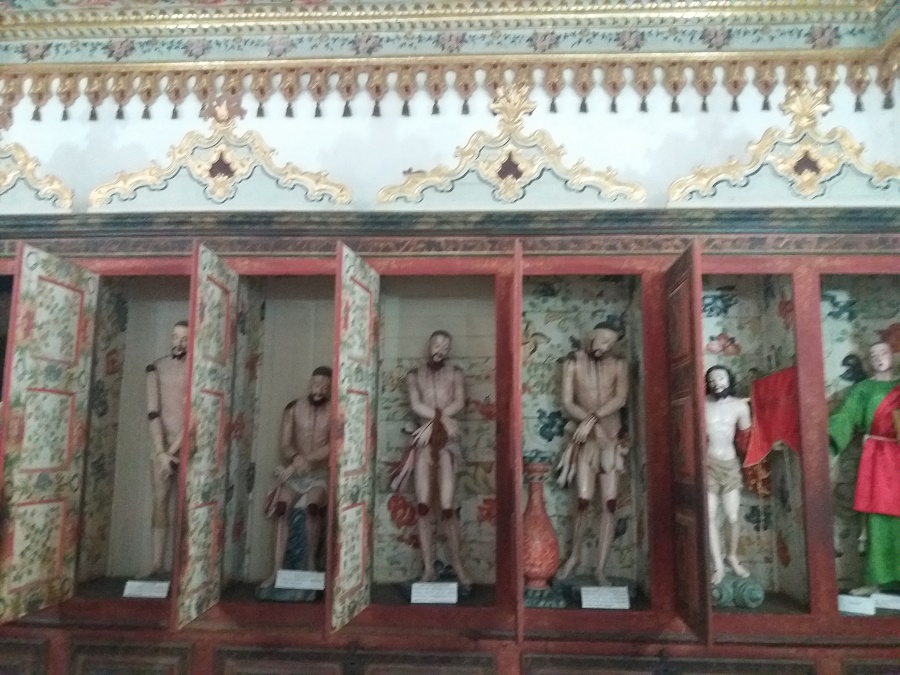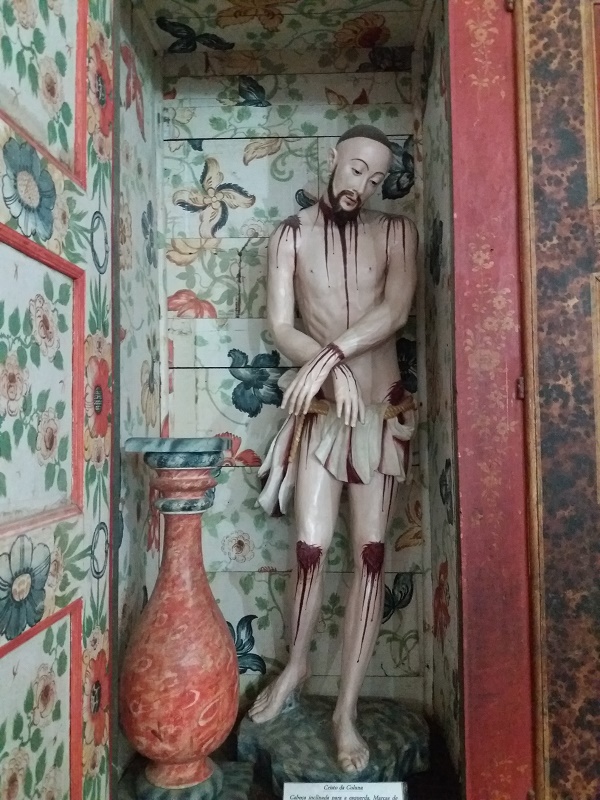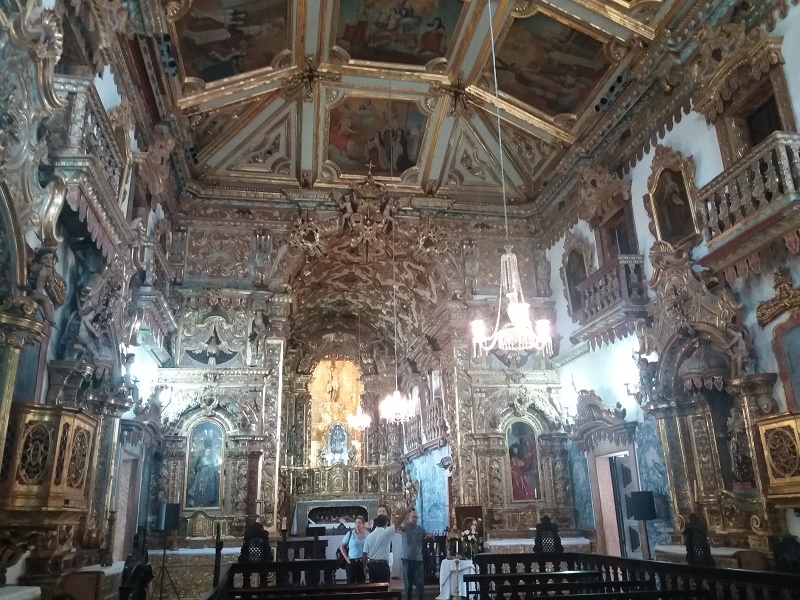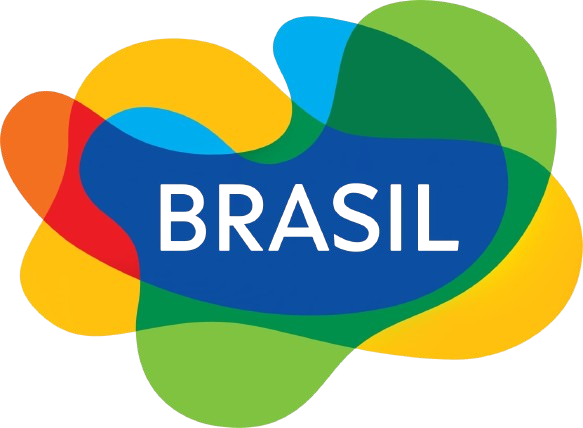Salvador, Bahian Baroque and Chines Christs. 5 nights / 6 days.
¡Compartí esta propuesta en tus redes!
Información general
Salvador, Bahian Baroque and Chines Christs.
Valid from 01/04 to 20/12/2024
An artistic-religious tourism program about the Bahian culture and its rich Baroque heritage.
The program presents a city tour in Salvador with a panoramic visit to the city and a walk through the historical center of Salvador to contemplate all the architectural heritage of the first capital of Brazil.
We continue with a tour of the most important museums of Salvador. The 4 main art museums of the city where you can observe a complete range of artistic options, from the purest of the colonial baroque, to the most modern and avant-garde of Brazilian contemporary art through the millenary African art and its pieces of offerings and rituals, masks and wooden art that shows the richness of the African continent.
A full day religious tour to follow in the footsteps of the Bahian Saint “Sister Dulce”, a religious sister contemporary to Teresa of Calcutta in her life and works. We end the program with a visit to the historical cities of the Bahian reconcavo visiting Santo Amaro, Cachoeira and San Felix. In the city of Cachoeira we will visit the beautiful church of Nossa Senhora do Carmo and the exhibition of the Chinese Christs, a set of baroque sculptures made in the Portuguese colony of Macau and sent to the Portuguese colony of Salvador. Undoubtedly a proposal for those who love art, architecture, traditions and the immense cultural mix of Bahia.
5 nights / 6 days program
Includes:
– Lodging at the selected hotel.
– Breakfast.
– Arrival and departure transfer.
– City Tour in Salvador (8 hours tour).
– Tour of the Museums of Salvador (4 hours tour).
– Religious Tour in Salvador (8 hours tour).
– Tour to the City of Cachoeira with visit to the Third Order of Carmen Church and the exhibition of the Chinese Christs ( tour from 8 to 10 hours ).
– English or Spanish speaking guide during the excursions.
Hotel Casa de Amarlindo 5*
Single USD 1.102,00 / Doble USD 757,00
Catussaba Resort 4*
Single USD 1.012,00 / Doble USD 680,00 / Triple USD 670,00
**** does not apply during Brazilian holidays or event periods in the city of Salvador.
Program:
Day 1: Arrival in Salvador. Reception at the airport. Transfer to the hotel. Lodging and rest of the day at leisure.
Day 2: Breakfast and departure for the City Tour in Salvador:
9:00 to 12:00hs.
This tour starts at the Farol da Barra, geographical imitation of the Bay of All Saints with the Atlantic Ocean where a stop for photos is made. Along the Sete de Setembro Avenue we will pass by the descent of Barra where the Salvador Yacht Club, the Church of Santo Antonio da Barra and the English cemetery are located. We continue through the Lardo da Vitoria (where the oldest church in Bahia is located), the Corredor da Vitoria (the place where the Bahian aristocracy lived in their beautiful mansions as the current Carlos Costa Pinto Museum), Campo Grande (the stage of fierce battles during the events that preceded the struggles of Bahia’s independence as well as the stage of the Bahian carnival). The tour continues on foot visiting the Municipal Square where the Rio Branco Palace (seat of the State Government) and the Municipal Chamber are located, in front of the Lacerda elevator from where one of the most beautiful views of the Bay of All Saints is contemplated. Then the tour continues towards the Terreiro de Jesus where the Basilica of Salvador and the Church of San Francisco, one of the richest in Brazil considered a beautiful example of Portuguese baroque. The tour ends at Largo do Pelourinho, a place that mixes colors, races, cultures and history, recognized as a World Heritage Site by Unesco and immortalized by the writer Jorge Amado. Stop for rest and lunch (not included).
14:00hs to 17:00hs.
The tour continues towards the Tororó Dam where the group of sculptures of the “Orixas” of Candomble and the Mundialista da Fonte Nova stadium used both in the 2014 World Cup in Brazil and in some matches of the Rio 2016 Olympics are located. The circuit continues along the Vale de Nazaré Avenue which leads to the lower city through the Américo Simas tunnel, passing through the port area and crossing the commercial district of Calzada where you can see the beautiful building of the railway station from where trains leave for the suburbs. Just in front is the Largo de Roma, where is located the Social Work of Sister Dulce (Bahian nun whose canonization was requested to the Vatican), we continue along the Avenida dos Dendezeiros, reaching the hill of Bonfim where a stop for photos is made in the most famous church of Salvador in function of the traditional “lavado de Bomfin” commemoration marked by the Bahian women throwing water on the steps of the temple in a party that lasts the whole day. We will pass by the Fort of Mote Serrat, a place of unparalleled beauty where you can contemplate the architectural heritage and the bay of All Saints. Then we continue to the Model Market to appreciate the local handicrafts with its typical colorful with the sea in the background and the sound of berimbau (typical instrument of capoeira). Return to the hotel.
Day 3: Breakfast and departure to Museums Tour
Departure from the hotels located in Salvador to the Carlos Costa Pinto Museum with its collection of colonial furniture made of jacaranda wood, colonial pieces including antique jewelry. There are 3,175 specimens divided into 12 collections: Glass, Design, Miscellaneous, Sculptures, Engravings, Imagery, Furniture, Honorary Order, Gold and Silverware, Painting, Porcelain and Silverware. The tour continues to learn about Salvador’s African history at the Afro-Brazilian Museum which has interesting African exhibits, artistic works such as baskets, ceramics and wood carvings. A collection of rustic pieces that proves a great African influence in the Bahia: Capoeira, Orixas and a series of sculpted wooden panels of the Orixas by the premier artist Salvador Caribé. We continue to the Abelardo Rodrigues museum, a Pernambuco collector who gathered during his life one of the most important collections composed of more than 800 objects that reveals the historical and artistic trajectory of sacred art in Brazil. The tour goes through the Baroque and Neo-classical periods, its forms of representation and devotion, bringing the human closer to the sacred. Finishing the tour at the MAM (Museum of Modern Art) with a historical architecture in the middle of the urban square, the Museum has a big house, chapel, “senzala” (place where the slaves lived), fountain and landing channels. The construction marked Bahia’s cultural history and became a symbol of the opulence of colonial architecture in the 18th century. The current collection of the MAM-BA is composed of more than 1200 pieces, of diverse languages, supports, traditions and places of the world.
Day 4: Breakfast and departure for Religious Tour
Departure from the hotels located in Salvador, heading to the Monastery of St. Benedict, the first Benedictine monastery in the Americas founded in 1582. The project that inspires the monastic life obeys a certain ideal and a hope. In Benedictine life, this ideal of “truly seeking God” and “putting nothing before the love of Christ” is structured on three pillars: prayer, study and work. The tour continues to the Church of the Conception of the Beach, which was ordered to be built by Tome de Sousa after his arrival in Bahia on March 20, 1549. Next to this church, Thome de Souza ordered the construction of the “slope” of the Conception for the access to the works of the citadel in the upper part of the city. The tour continues to visit the Memorial of Sister Dulce with a permanent exhibition on the legacy of love and charity of the “Good Angel” of Brazil gathering more than 800 pieces that help preserve and keep alive the ideals of the religious. The habit she wore, photographs, documents and personal items can be seen in this memorial that still preserves intact Sister Dulce’s room, where the chair in which she slept for 30 years by virtue of a promise. Other important events of her life were remembered through models, books, diplomas and medals. The walk continues along the avenue of the “Dendezeiros” reaching the Bomfim Hill, where we will make a stop for photos in the most famous church of Salvador in function of the traditional “Lavado de Bomfim” commemoration marked by the Bahianas throwing water on the steps of the temple in a party that lasts the whole day.
Day 5: Breakfast and departure to the city of Cachoeira, Santo Amaro and São Felix.
During this full day tour we will discover the valuable architectural and cultural complex with beautiful baroque buildings, an important center of Afro-Brazilian culture and religious syncretism typical of Brazil and a tour of the historic cities of the Bahian basin such as Santo Amaro, Cachoeira and São Felix.
At 81 km from Salvador we will find the city of Santo Amaro da Purificação. We will make our first stop at an open-air fair where the visitor can learn about fruits, vegetables, herbs and condiments from the region of the Bahian reconvaco, a market that gathers the local population as in fact happened in the time of colonial Brazil. Then we will visit the Baroque Church of Nossa Senhora da Purificação and the Santo Amaro Square. Leaving Santo Amaro we will continue to the city of Cachoeira where we will visit the Mother Church of Our Lady of the Rosary, the Church of Our Lady of Ajuda and the Third Order of Carmo where we will observe the valuable cultural heritage known as the “Chinese Christs”. We will pass by the Santa Casa da Misericórdia and the Church of Nossa Senhora da Conceição do Monte where we will visit the “Da Boa Morte” Sisterhood.
The “Chinese Christs” of the Church of Our Lady of Carmo are a group of sculptures that show the Passion of Our Lord in life-size sculptures where the faces of Christ with Chinese features stand out. This collection of baroque art is unique in the entire American continent. It was a gift made by the Portuguese colonial of Macau to the Portuguese Colony settled in Salvador de Bahia. The church that houses these sculptures has a beautiful gold-plated baroque interior with panels of Portuguese tiles depicting biblical themes.
Then we will pass by the railway station and the Don Pedro II bridge that crosses the Paraguaçu River connecting the cities of Cachoeira and San Felix, the latter known for the Brazilian cigar industry. We will visit a cigar factory where we will be able to observe the whole process and the elaboration of cigars from the tobacco leaves to the final product placed in boxes for sale. In Sãn Felix we will also pass by the Church of Jesus Menino and the Church of the Lord of São Felix before returning to Salvador.
Day 6: Breakfast, check out and transfer to the airport. End of program.



Estamos a tu disposición
Respondemos tus consultas a la brevedad.


